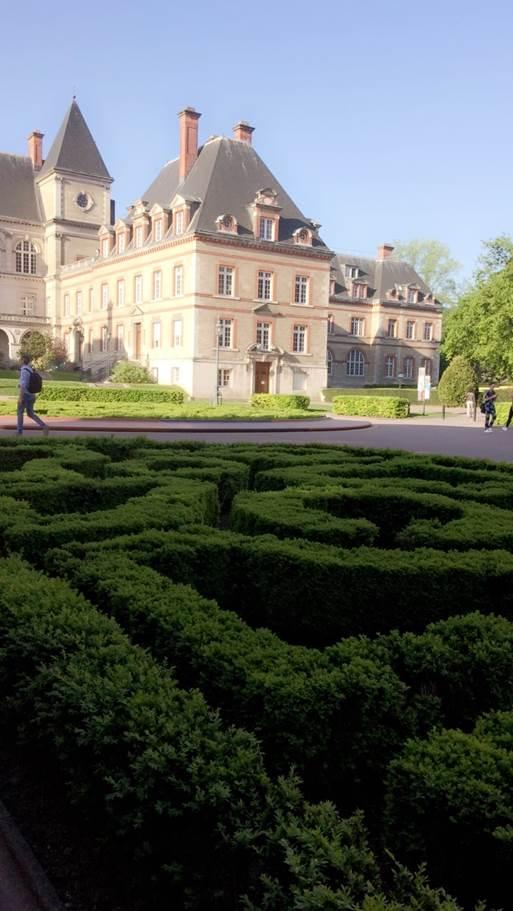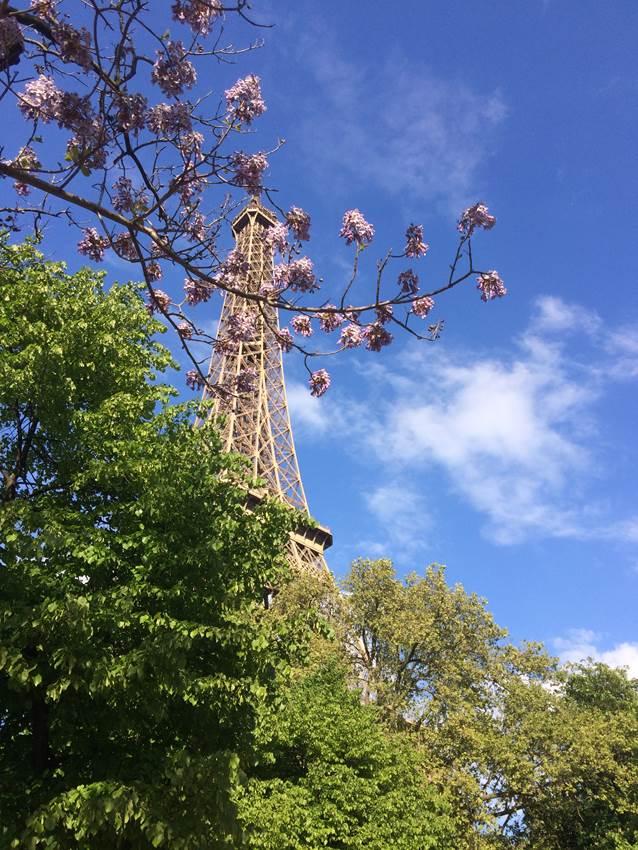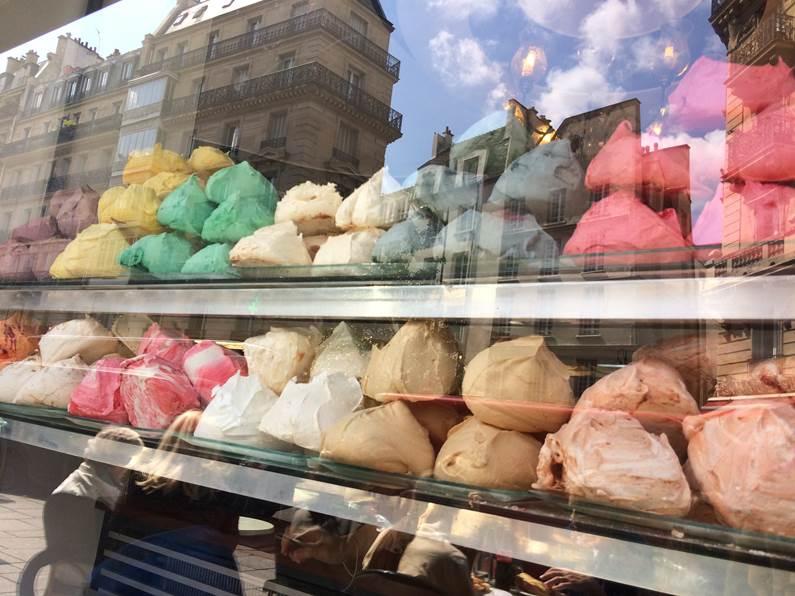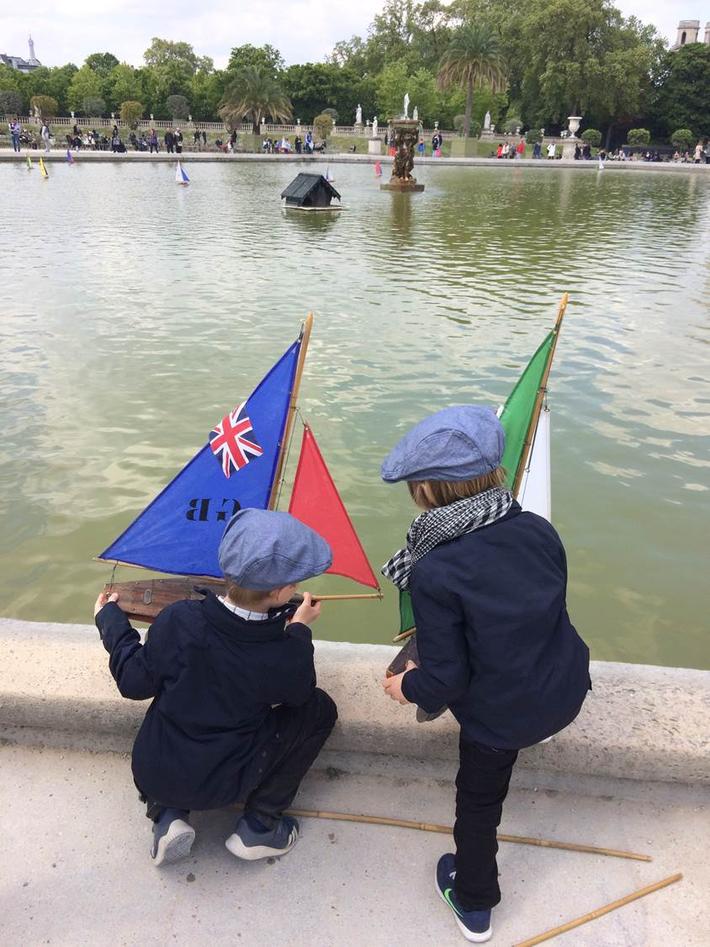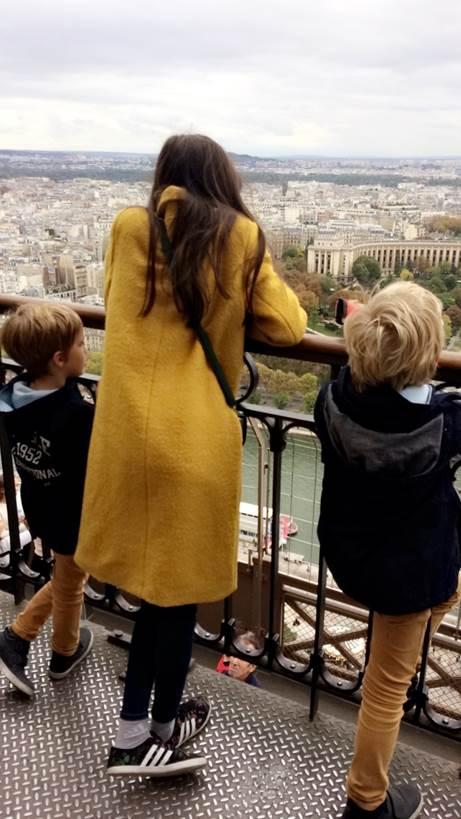Expat life in Paris – La belle vie à Paris
Former CCBIO Postdoc Agnete Engelsen was awarded a FRIPRO mobility grant from NFR/ MCA COFUND and is currently resident in France with her family to embark on exciting research projects with distinguished collaborators at Gustave Roussy Cancer Campus Grand Paris. We asked her to report of her life in beautiful Paris.

Main content
Gustave Roussy Cancer Campus Grand Paris is one of the world’s leading cancer-research institutes and the premier European Cancer Centre. Patients with all types of cancer can be treated here, and patients are referred to Gustave Roussy from all over France. Furthermore, the institute employs an integrated approach to research, patient care and teaching. This is in the spirit of Professor Gustave Roussy, who envisioned the benefit for the patients by bringing together all the skills essential for top quality research in oncology, encompassing basic research, clinical research and translational research to link the two. Today Gustave Roussy is particularly well renowned for the pioneering work of the institution in the field of immuno-oncology.
The research project
My motivation to go to Gustave Roussy was to embark on a very exciting research project with our distinguished collaborators Dr. Salem Chouaib and CCBIO affiliate Dr. Jean Paul Thiery. Our work has been carried out in the Chouaib laboratory, Unit 1186 'Integrative Tumor Immunology and Genetic Oncology', and our goal has been to elucidate how targeting AXL-mediated cellular plasticity programs at the tumor-immune interface can be applied as a strategy to improve cancer treatment and also prevention. The central hypothesis is that an unexplored membrane crowding mechanism generates higher-order GAS6/AXL complexes that activate signal transduction pathways to maintain cell plasticity gene expression programs and confer immune resistance by abrogating the tumor-immune cell interaction; fueling immune escape, malignant progression and treatment failure in cancer patients. At Gustave Roussy we have available excellent tools to embark on this project, like specific pairs of cytotoxic T-cells and tumor cells derived from the same patient, established by Fathia Mami-Chouaib. I have learned a lot from my wonderful peers at Gustave Roussy, and in particular from postdoc Stéphane Terry with whom I have worked most closely. The work so far has been very instructive, and the possibility to work more closely with true immunologists has been very inspirational to me. I have acquired quite a few new neat techniques to bring home to my research community in Bergen to continue the work on the tumor cell-immune cell interactions.
Inspirational seminars
Apart from the lab-work, the inspirational seminars at Gustave Roussy are plentiful. And the lab-meetings are also frequent with lively discussions. I have had the opportunity to present my work at Cité Universitaire de Paris, a unique and beautiful campus in Paris, and also at several occasions internally at Gustave Roussy. In sum, the opportunities for postdocs to present and discuss their work at Gustave Roussy, and also for networking, are excellent. A few of the meetings at the institute are held in French, which makes them potentially twice as educational for non-native speakers like me, I guess. However, most of the meetings and presentations are held in English, and I still have not had to present my own work in French. In this link you will find a report from the meeting 'Immunotherapy 2017: progress and challenges' which was held in Paris, November 27th-28th 2017, organized by our mentor Salem Chouaib.
Slow food
The best thing about living in Paris is the way our lifestyle has slightly changed since our arrival. Since our arrival in Paris last summer we have been spoiled with the wonderful French cuisine and fresh baguettes, and we frequently bring our picnic to the parks. We love to go to the local farmers markets to buy fresh groceries of the season, and even the kids have acquired some preferences for cheese that will be expensive to bring home. The French seem not hesitant to queue up to get the best very baguette at the very best boulangerie, the best butter and cheese at the fromagerie, the best after dinner sweets at the pâtisserie and so on.
The French lunch is an institution in its own. Not only is it considerably longer and more eventful than the traditional Norwegian lunch-break, but it is also a very important social event. A three-course menu of your choice is served every day at the hospital canteen, and the lengthy lunch-break is followed by a lengthy coffee-break upon return to the laboratory buildings. Being a Norwegian who normally have a 15 minutes lunch-break consisting of a sandwich and coffee in front of the computer, I must admit it took some time for me to adapt to the French lunch ritual. However, now I really enjoy it, and also I appreciate that it is one of the best occasions to discuss projects and exchange ideas with your peers.
My patience has been put further to a test with the long daily commute through the busy city center; a minimum of 3 hours commute per day. With frequent strikes and rail incidents sometimes quite a lot more. However, as long as one can have a seat – and stay awake – this is also an excellent opportunity to get some work or reading done. Due to the long working days, weekends are usually off and free to enjoy with family and friends, and a great opportunity to explore Paris and the beautiful surrounding areas. Our children have been accepted at a unique school, Lycee International de Saint Germain en Laye. They have long days too with teaching and homework all in French and the Norwegian curriculum in addition. Thus, in the weekends we have been heading for the beautiful and joyful parks of Paris or the green forests of Fontainebleau for recreation.
Magnifique, historique, stressant
The first year of work at Gustave Roussy and of life in Paris has been a wonderful experience, which I would highly recommend to any young researcher who is eager to travel and learn from the experts in their field of research. For the city of Paris, no further advertisement is needed. I am very grateful for the funding to make this adventurous and educational journey to Gustave Roussy possible. And in particular, I am grateful to my family for their willingness to move to Paris and for their dedication to learn French and embrace their novel existence in the bustling city of Paris. Without their support, this journey would not have been possible. Particularly with children, a transition like this is never easy, but in the end – for us – it has been very rewarding year for all. And hopefully, my children will remember how well they handled the challenges abroad. I am convinced that the strong collaborations with my peers at Gustave Roussy will strenghten the development of our future cancer research projects. Finally, I would like to emphasize that the collaborative networks established through CCBIO has been a very good starting point for applying for a research stay abroad.
Agnete Engelsen
